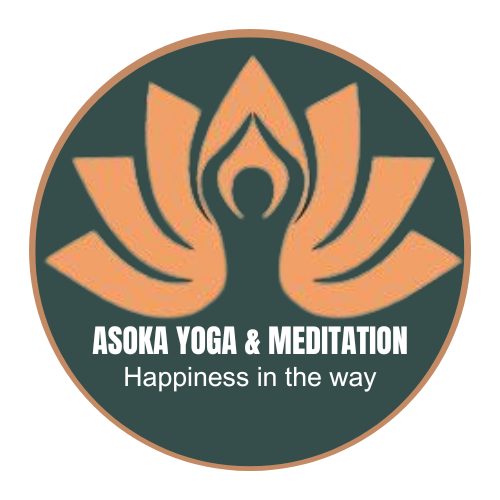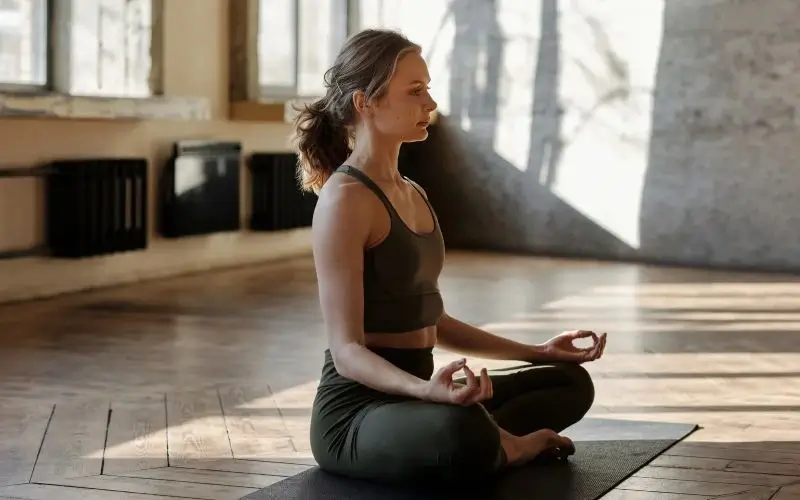Yoga is more than just physical exercise—it’s a powerful tool for mental well-being, proven to reduce stress, alleviate anxiety, and even rewire the brain. Here’s how a consistent yoga practice can create profound psychological shifts.
1. Yoga’s Impact on the Brain & Nervous System
✅ Reduces Stress & Cortisol
-
Mechanism: Activates the parasympathetic nervous system (rest-and-digest mode)
-
Science: Lowers cortisol by 27% (University of California study)
-
Best Poses: Child’s Pose, Legs-Up-the-Wall, Savasana
✅ Alleviates Anxiety & Depression
-
Mechanism: Boosts GABA (calming neurotransmitter) by 27% (Boston University)
-
Science: As effective as walking or antidepressants for mild-moderate depression (Harvard Review)
-
Best Practices: Slow-flow yoga, Bhramari (humming bee breath)
✅ Enhances Emotional Resilience
-
Mechanism: Strengthens prefrontal cortex (decision-making) while calming the amygdala (fear center)
-
Science: Regular practitioners handle stress 40% better (NIH study)
-
Key Tool: Meditation + breathwork (Pranayama)
2. Yoga for Specific Mental Health Challenges
① PTSD & Trauma
-
Why It Works: Releases stored tension in the body (somatic healing)
-
Recommended Style: Trauma-informed yoga (emphasis on choice + grounding)
② ADHD & Focus Issues
-
Why It Works: Improves working memory by 15% (University of Illinois)
-
Best Poses: Balancing postures (Tree Pose, Eagle Pose)
③ Insomnia & Sleep Disorders
-
Why It Works: Triggers melatonin production
-
Evening Routine: 10 min of Legs-Up-the-Wall + 4-7-8 breathing
3. The Mind-Body Connection
Yoga helps by:
-
Releasing trapped emotions in muscles (hips, shoulders)
-
Breaking rumination cycles through mindful movement
-
Building self-awareness to catch negative thought patterns
Example: Hip-opening poses often release pent-up grief or fear.
4. A 15-Min Mental Health Yoga Sequence
-
Cat-Cow Stretch (2 min) → calms nervous system
-
Forward Fold (1 min) → reduces overwhelm
-
Supported Bridge Pose (3 min) → lifts mood
-
Alternate Nostril Breathing (3 min) → balances emotions
-
Guided Meditation (5 min) → resets thought patterns

5. Yoga vs. Other Mental Health Treatments
| Therapy | Benefits | Limitations |
|---|---|---|
| Yoga | Holistic (body + mind), no side effects | Requires consistency |
| Medication | Fast-acting for severe cases | Side effects (weight gain, fatigue) |
| Talk Therapy | Addresses root causes | Slow progress for some |
Ideal Approach: Yoga + therapy + (if needed) medication.
6. Getting Started
-
For Anxiety: Restorative yoga + extended exhales
-
For Depression: Energizing flows (Sun Salutations)
-
For Trauma: Slow, mindful movement with breath focus
Consistency > Intensity: Even 10 mins/day creates change.
“Yoga is the journey of the self, through the self, to the self.”
— The Bhagavad Gita
Need Personalized Guidance? Our Therapeutic Yoga Program includes:
-
One-on-one mental health yoga sessions
-
Customized sequences for your needs
-
Neuroscience-based breathwork
#YogaForMentalHealth #AnxietyRelief #MindBodyHealing

